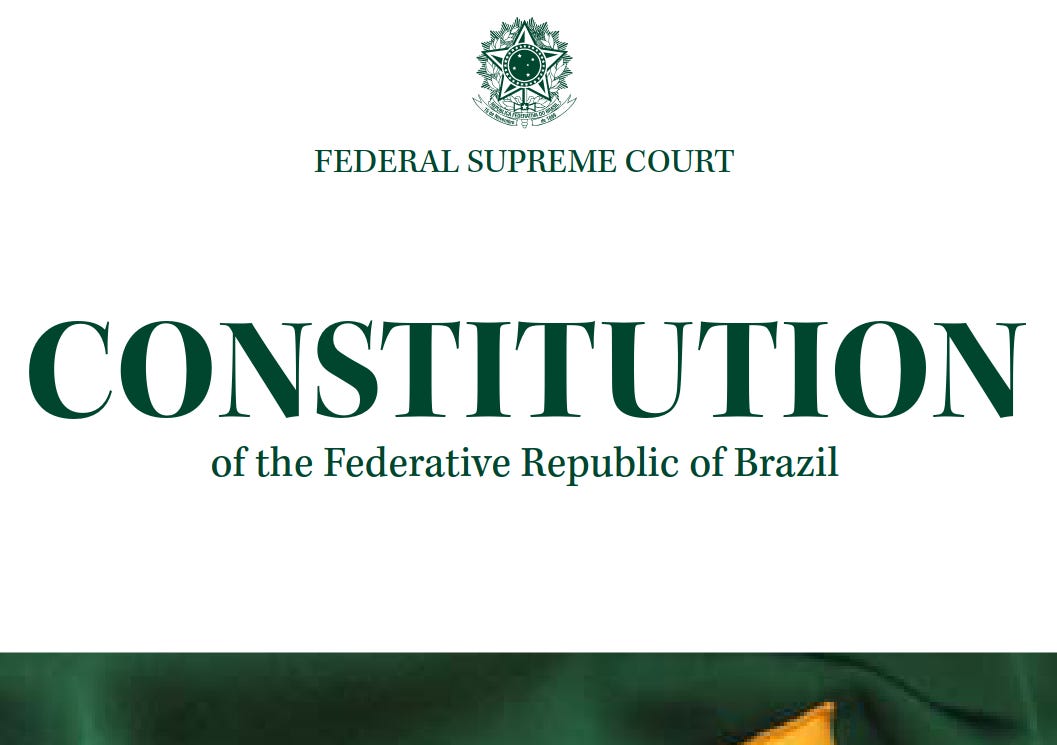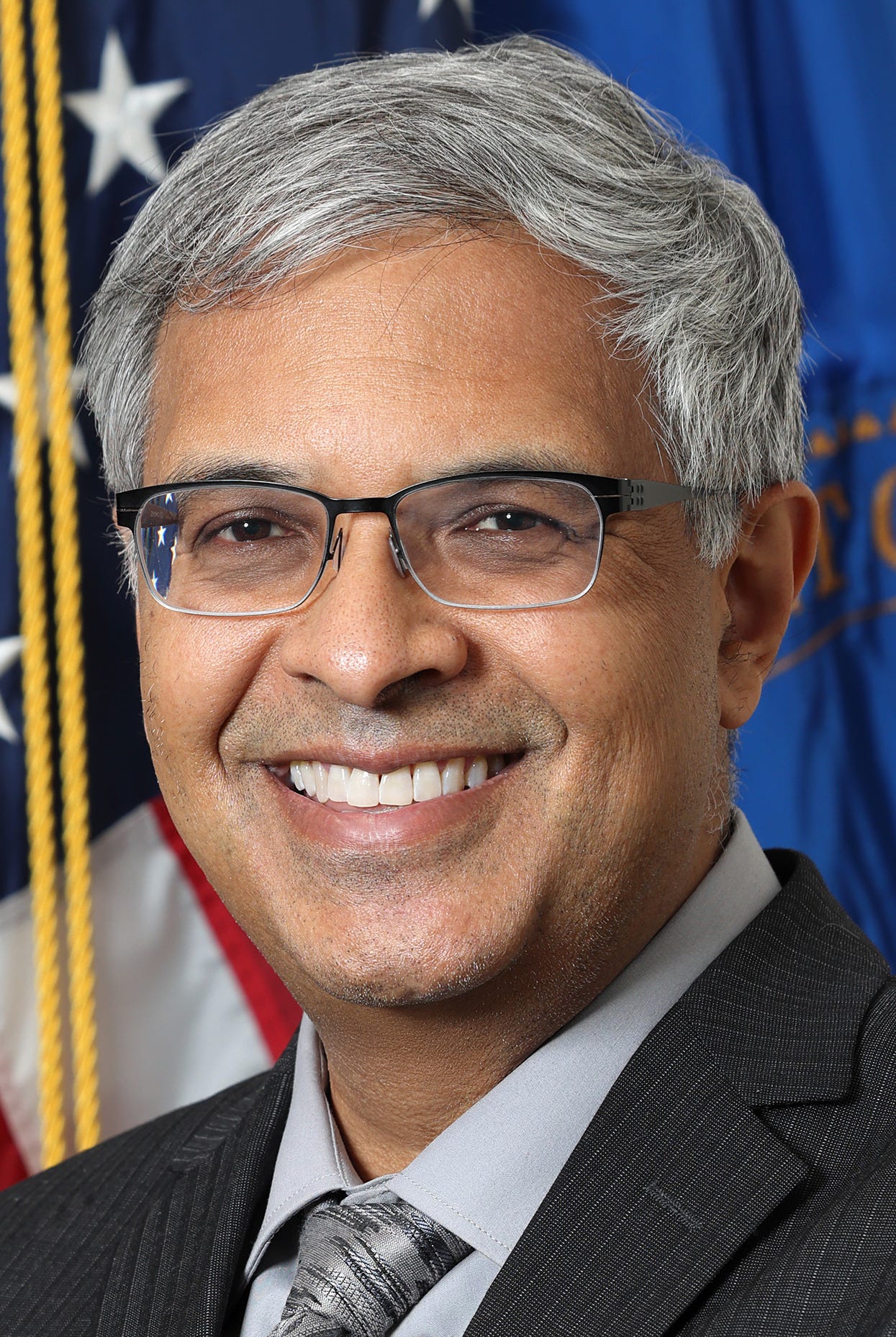Ponies have common sense
but not all justices do
It was one of our many entirely dry days over here. We like having them, they’re great for any kind of outdoor activities. On the downside, though, it can get dusty when it hasn’t rained for a bit. When a red Silverado whirled into the ranch, it was followed by a cloud of reddish brown dust. I was still able to recognize John though. He’s the owner of J Bar Ranch. Bob was right outside. John barely gave him any time to greet him.
“I don’t know what to do anymore,” said John, “I got notice from court that they’re taking our western pasture.”
“What?! How can that be?” Bob wanted to know.
“Did you see the billboards I had up right next to Route 35?”
Bob nodded and added: “Yeah, I liked them. More people should read that the Bible only mentions two genders.”
“I liked them too and I let the nonprofit that wanted them up use our hardware for free. But a judge just declared that to be ‘incitement’ and then decided that the land that the billboards were on, needs to be taken under county custody, because the land ‘incites to violence.’”
Bob was now getting angry too and said in an excited tone: “That’s completely unacceptable! Can a judge simply do that?”

Many who live in Western countries, will think that this could never happen to them. We live in a solid legal system, with legal protections, due process and judicial impartiality, right? We sure do, but that increasingly seems to have become an inconvenience to the “powers that be.”
If one wanted all of these aspects of the judicial process to change in one’s favour, one could try to change the laws. Yet that option would come with significant disadvantages: at first, the proposed changes would have to be discussed in a legislative session, whence it might attract (negative) publicity. Moreover, the legislative process can be notoriously slow and prone to vicissitudes in the political climate.
(Not prone to any vicissitudes are Wild Horse Wisdom’s analyses. If you like that, consider to subscribe. We have a free tier.)
If one really wanted to erode legal protections, therefore, the more elegant approach would be to have judges and prosecutors appointed who are on board with one’s own goals. It would take much longer for he general public to realize what has happened, because legal protections would formally remain in place and courtrooms would still look the same as they did before. However, what would change, is the judges’ verdicts.
The poster child for such a transformation of the judicial system is Brazil. It still has a Constitution. A very broad one indeed, that enshrines freedom of expression, which is guaranteed to all and is worded in even stronger terms in the cases of artistic or scientific expression, or parliamentary speech. Brazil also has a legal system built on procedures that embed due process and judicial impartiality.
Having a Constitution that provides a Bill of Rights is infinitely preferable over not having it. However, the presence of such a text alone is not sufficient for those rights to be enacted. As long as judicial decisions are being respected, then the ultimate arbiter of constitutionality is the Supreme Court. If one wanted to truly subvert a legal system without changing the laws, then the ideal approach would be to have Supreme Court justices appointed who willfully ignore the spirit of the law. Exactly that is what we are observing in most of the West, with Brazil certainly being the most extreme example.

Brazilian Supreme Court “justice” Alexandre de Moraes was recently hailed by the New Yorker for having “saved democracy from right-wing extremism.” In reality, what he appears to have succeeded at, is to kill democracy, by introducing right-wing extremist legal interpretations. Opponents of this statement will readily point out that Brazil is a constitutional republic. It sure has a Constitution, but what matters more, is how it is interpreted.
IX – the expression of intellectual, artistic, scientific, and communication activity is free, irrespective of censorship or license;
-Brazilian Constitution-
Brazil’s Constitution enshrines freedom of expression (Title II, Chapter I, Article 5, Paragraph IX - shown above), yet “extreme right-wing” commentator Oswaldo Eustáquio was arrested and saw his bank account closed when he took part in protests that followed the 2022 presidential election. Analogous to the United States, those protests were dubbed by press and judges alike as “an insurgency,” even though not a single gun was present. However, that proffered the the legal pretext to apply disproportionate sentences. When Eustáquio further critiqued the Supreme Court, he was slapped with another conviction and even some of his family members’ bank accounts were closed. I can only note that such “debanking” is an extremely cruel punishment that leads to almost complete exclusion from present day society. For that reason, Eustáquio presently lives in exile in Spain, whence Brazil is seeking to have him extradited. Inflicting such extreme punishments on relatives of the defendant is something that only happened before in Nazi Germany and in the worst days of the Soviet Union.
Brazil’s Constitution protects artistic expression, yet comedian Danilo Gentili saw himself prosecuted for a joke. A joke that supposedly violated the terms of the freshly minted “anti-racism” law. If the Brazilian Supreme Court had any intention of upholding its Constitution, it would not have allowed the “anti-racism” law to be enacted in the first place, since it is at odds with constitutional protections. Howbeit, what happened instead, was that “justice” Alexandre de Moraes added clauses to the proposal that had passed a vote in the Senate and expanded it to also criminalize “transphobia.” Whatever that means.
Article 53. Deputies and senators enjoy civil and criminal immunity on account of any of their opinions, words and votes. (CA 35, 2001)
-Brazilian Constitution-
Brazil’s Constitution explicitly grants deputies and senators immunity from criminal proceedings for any opinion they express (Title IV, Section V, Article 53 - shown above). Yet when federal deputy Marcel van Hattem called the present Lula government “cowards” and referred to the Supreme Court as “mafiosos,” the latter opened a formal inquiry into him, stating that it may lead to him losing his seat, among “other punishments” (in Brazil, a “deputy” is the equivalent to a Congressman in the US or an MP in Australia, Britain or Canada).
Brazil formally does have judicial independence and guarantees for impartiality of judges. Yet in recent years, we have been able to observe many trials in which the defendant was supposed to have targeted the Supreme Court in some way. This led to trials in which “justice” de Moraes started the case himself and ordered police to arrest the defendant. He then organized a trial in which he swapped seats, acting as prosecutor, victim and judge at the same time. This obviously goes against the most fundamental principles of judicial procedure and is also illegal in Brazil. Yet these defendants were convicted and the corresponding sentences were enacted. Even the scientific literature has caught up with issues of judicial impartiality in Brazil. Some conclusions from that paper, that words the situation mildly, are:
The study concludes that: (i) Brazil does, in fact, have judicial independence; (ii) this independence has been misused through creative interpretations and judicial activism; (iii) in Brazil, impartiality functions more as an aleatory duty for judges rather than a guaranteed right for citizens; (iv) the dominant Brazilian jurisprudential interpretation of suspicion and impediment hypotheses as numerus clausus is not admissible; (v) the country’s inquisitorial legal model steers judges away from impartiality and towards partiality; (vi) Brazil requires a new criminal procedure code; (vii) creative interpretations and judicial activism reinforce conservative elements of the inquisitorial criminal procedure, often acting against new legal reforms; and (viii) discrimination extends beyond the legal framework, meaning that even legislative changes may not be sufficient to fully address the issue.
It is fair to say that Brazil is presently governed by a tyranny of the judicial. If one thinks that such could not happen elsewhere, one would be mistaken. In fact, the United States have come scarily close to similar outcomes. Eerily similar to Brazil, when protests arose on January 6, 2021, that culminated in some entering the Capitol, many protesters were arrested, including many who did not enter the Capitol building. Like in Brazil, the press and Democrats alike were quick to label these protests an “insurrection,” even though no gunfire was involved. Some of the participants in the protests outside the Capitol were arrested with felony charges and incarcerated.
One immediately wonders how that is possible. The Bill of Rights, more specifically the First Amendment, states that:
“Congress shall make no law […] abridging the right of people to peacefully assemble.”
- The First Amendment -
Did the protesters outside the Capitol do anything more than to assemble peacefully? Well, that is where legal theories come in. Many trials were started against defendants who were supposed to have “instigated the insurrection.” In sundry an example, incarceration of the defendants was pursued based on the Sarbanes-Oxley Act. That piece of legislation was created in the wake of the Enron scandal, in which the corrupt Enron leadership did anything it could to obstruct the criminal investigation into the company. To avoid such obstruction of a criminal investigation in the future, the bipartisan act was introduced by U.S. Senator Paul Sarbanes (D-MD) and U.S. Representative Michael G. Oxley (R-OH) and signed into law by president George W. Bush in 2002.
A cursory reading of the Sarbanes-Oxley Act leads one to conclude that the Act is all about countering corporate fraud. Unsurprisingly so, since it was a direct reaction to the Enron scandal. Yet its ninth title reads:
Amends Federal criminal law to establish a maximum 20-year prison term for tampering with a record or otherwise impeding an official proceeding.
-Sarbanes-Oxley Act of 2002, Title IX-
Prosecutors who targeted to incarcerate the January 6 protesters contended that the election confirmation hearing in Congress that day was an “official proceeding” that protesters were “impeding,” which then could lead to criminal sentences. It does not take long to conclude that this outcome is not at all what was intended when the Sarbanes-Oxley Act was enacted. Yet many “justices” went along with this very far-fetched interpretation and effectively suspended defendants’ constitutional rights.

Based on the example of the January 6 cases, we might still be led to think that Supreme Court justices would never ignore the Constitution, right? One would be mistaken to arrive at that conclusion. When the Twitter Files appeared after Elon Musk’s takeover of then-Twitter, it became clear that the Federal Government had massively pressured social media companies to suppress opinions that deviated from its official narrative on COVID-19. That included opinions from one of the world’s leading epidemiologists, Dr. Jay Bhattacharya, who notably presently is the Director of the National Institutes of Health. It had done so primarily by indirect means, through a network of nonprofits that received funding and directions from the government, but could pretend to be “independent” entities. The Federal Government had also communicated the thinly veiled threat to repeal social media companies’ Section 230 liability protection, which would plunge them into financial ruin. It is pretty clear that the Federal Government had infringed upon the plaintiff’s, and thereby the American public’s, constitutional rights. Several plaintiffs, including the States of Louisiana and Missouri, sued the Federal Government for what should be interpreted as an obvious violation of the First Amendment. However, the Supreme Court dismissed the injunction from the Fifth Circuit on grounds of lack of standing. Note that this implies that they did not rule on the merits of the case itself, which some of the judges found overwhelming, as can be read in Justice Alito’s dissenting opinion.
More frightening than the verdict itself, though, was the public hearing, in which “justice” Ketanji Brown-Jackson made several statements that seem rather out-of-context, such as her expressing “concern” that the First Amendment “might be hamstringing the government?” Also here, a cursive reading of the Constitution is sufficient to deduce that in fact the entire premise of the Constitution is to the limit the scope of activities for the Federal Government, most explicitly so the Bill of Rights. One can only conjecture as to why she acted the way she did, but one conclusion we can draw from it for certain: if the US Supreme Court had a majority of “justices”-in-name-only, like Brown-Jackson, then the Constitution would be null and void. It would still exist as a legal document and courts would still look the same as they do today, but the trials in them would turn into mock trials to prosecute anyone who opposes power, as is the case in Brazil.
It is not too late, though, to change course. There are several paths to instill change. The first, and most obvious path, is to use another provision of the Constitution, i.e. the provision to impeach judges (Article II, Section 4). As can be learnt from Congress.gov, this does happen and has become more frequent in recent decades. Therefore, it was rather uncanny to watch Chief Justice Roberts make a public statement against impeaching judges recently.
In a country that has separation of powers, none of the three branches of government can dominate the other two. In practice, systemic stability exists when the three powers balance each other. In recent times, far too much attention has been given to the importance of the Judicial branch to keep the Executive in check. However, the Judicial can amass too much power too, in which case the Legislative has the power to return the balance. The Legislative shall not hesitate to do so.
In the United States, the Legislative branch clearly has to take action against certain rogue judges and make sure the country returns to constitutional standards. The first step must be to impeach “justice” Brown-Jackson, who is either too compromised or lacks the mental ability to understand the Constitution.
In Brazil, the Legislative branch can impeach justices too. However, Brazil has meanwhile gone so far astray from constitutional guarantees that Senators are afraid to do so. It is perfectly conceivable that if a vote of impeachment against de Moraes passes, he will rule it to be an “insurrection” and therefore null and void. Likewise, if such a vote doesn’t pass, then all those Senators who voted for are in fear to be prosecuted by de Moraes for “disrespecting the Supreme Court,” as exemplified by Marcel van Hattem’s case.
For these reasons, Brazil will have to pursue another path. Verdicts issued by “justice” de Moraes that result from trials in which he himself acted as prosecutor, victim and judge are obviously in flagrant violation of procedural standards. Therefore, it is time for the Brazilian military and police to simply disregard them. There is no law that would force them to enact verdicts from illegal trials. If “justice” de Moraes has no-one to act upon his verdicts, they become irrelevant.
A few weeks later, John returned to our ranch to have dinner with us outside. It was still warm and dusty, but our patio provides for a welcome cooldown as the sun sets. John was much more relaxed. It turned out that the non-profit “Political Speech Union” had offered legal help. They had appealed the lower court’s ruling, which was effectively stayed. “Turns out there’s still some non-profits that do good work and some common sense in our legal system,” Bob concluded. We were relieved and could sleep – and graze – in peace again. We will always be able to do so, if we manage to avoid tyranny of the Judicial. I trust we will.




In the majority opinion on the US Supreme Court's ruling on Trump vs. Casa, Inc., more commonly known as the 'case that entailed nationwide injunctions,' Justice Amy Coney-Barnett annihilated "justice" Brown-Jackson's reputation, stating that
"We will not dwell on JUSTICE JACKSON’s argument, which
is at odds with more than two centuries’ worth of precedent,
not to mention the Constitution itself. We observe only this:
JUSTICE JACKSON decries an imperial Executive while em-
bracing an imperial Judiciary."
https://www.supremecourt.gov/opinions/24pdf/24a884_8n59.pdf
Justices need to be both competent and unbiased. A "justice" who is either too incompetent to read the Constitution and Case Law, too politically tainted to interpret the law with objectivity, or both, needs to be impeached. Impeachment proceedings for "justice" Brown-Jackson need to start right away.
Brazil does have a constitution that explicitly protects artistic freedom of expression. Yet comedian Leo Lins was convicted to eight years in prison for posting a standup of his. According to the court, the comedian "promoted verbal violence" and "foments intolerance" and the "Constitution does not provide a free pass to commit crimes and cannot be used as a justification for hate speech:"
https://g1.globo.com/sp/sao-paulo/noticia/2025/06/03/leo-lins-e-condenado-a-oito-anos-de-prisao-por-publicar-conteudo-preconceituoso-e-discriminatorio-contra-minorias.ghtml
What is verbal violence? As I have outlined before, a stick can hurt me, but overhearing your conversation cannot:
https://www.wildhorsewisdom.xyz/p/a-stick-can-hurt-me?r=31a4ti&utm_campaign=post&utm_medium=web&showWelcomeOnShare=false
The even more worrisome aspect of this verdict, though, is that it clearly illustrates that ideologically captured courts will not respect the Constitution as the most fundamental piece of legislation, but will resort to texts of lower authority and simply override the stipulations in the Constitution as they deem fit.
Brazil is presently living in a state of tyranny by the judicial. Other Western countries must do everything to avert getting there, which can only be accomplished through a balance of the powers, which includes impeachment of rogue justices.